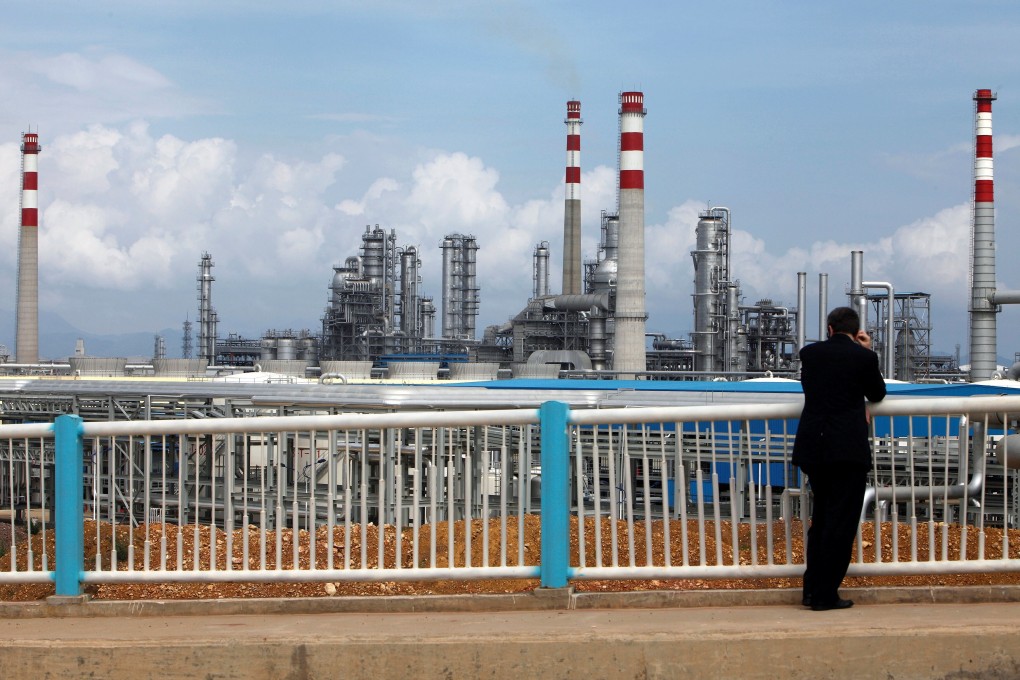Chinese state oil giant CNOOC slumps as new US sanctions seen crippling its international operations, analyst warns
- CNOOC slumped 14 per cent for its worst one-day slump since March 9 after Reuters reported about new US sanctions on Chinese firms
- Potential sanctions may deny CNOOC access to US dollar funding or dealing with global oil majors, Sanford C. Bernstein’s Beveridge says

CNOOC slumped 14 per cent to HK$8.13, its biggest one-day slump since a 17.2 per cent setback on March 9, just weeks before global oil prices slipped below zero for the first time. The oil explorer is a 64 per cent-owned flagship of China National Offshore Oil Corporation while foreign investors owned about 16 per cent.
Noting the news report, CNOOC said that its parent company has not yet received any official notice or decision from relevant US government agency, according to an exchange filing on Monday. A spokesman for its parent company did not answer phone calls seeking comments.
The escalation in sanctions is likely to make life harder for President-elect Joe Biden in his policy on the soured US-China relationship. Trump himself signed an executive order earlier this month banning US persons from transacting in securities of “Communist Chinese military companies.”

06:04
US-China relations: Joe Biden would approach China with more ‘regularity and normality’
“The most damaging would be restrictions on access to US dollar financing, or equally bad, restricting work with US companies or persons,” said Neil Beveridge, a senior analyst at Sanford C. Bernstein. “This could effectively paralyse CNOOC’s international operations. This does not feel like a buy-on-the-dip moment.”